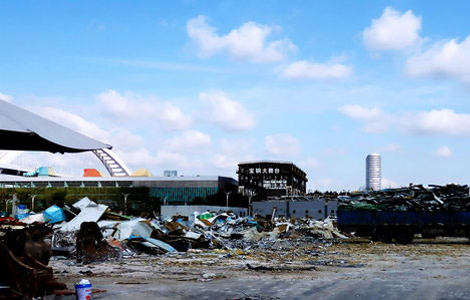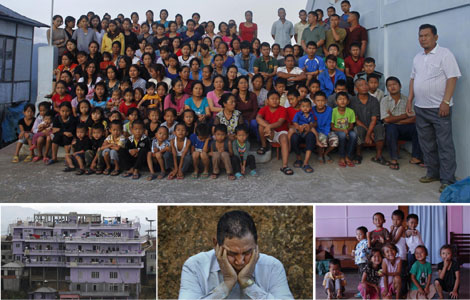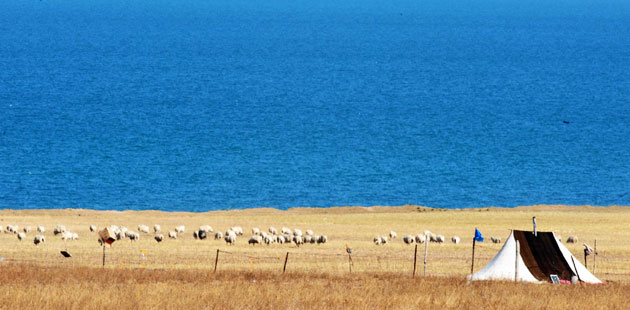Mainland, Taiwan sign nuclear safety agreement
Updated: 2011-10-21 07:25
By Tan Zongyang (China Daily)
|
|||||||||||
TIANJIN - The mainland and Taiwan signed an agreement on nuclear safety on Thursday to boost cooperation following Japan's nuclear crisis.
|
Time line Major talks between the mainland-based Association for Relations Across the Taiwan Straits (ARATS) and the Taiwan-based Straits Exchange Foundation (SEF): 1992 April Singapore, the two sides agree to meet regularly. 1998 October Shanghai, the two sides agree on starting talks on various topics in politics and economy. 2008 June Beijing, the two sides agree on weekend charter flights across the Straits and a guideline on mainland tourists visiting the island. It was the first formal cross-Straits talk since the dialogue was suspended in 1999. 2008 November Taipei, the two sides reach agreements on opening up trade, transport and postal service across the Straits. 2009 April Nanjing, the two sides agree to cooperate on cracking down on crimes, and Taiwan announced it will lift the ban on investment from the Chinese mainland. 2009 December Taichung, the two sides reach agreements to protect the rights of fishermen and sailors across the Straits and to improve exchanges on the quarantine standard of primary products. 2010 June Chongqing, the two sides sign a landmark trade deal to remove tariffs within two years on 539 items exported from Taiwan to the mainland worth $13.84 billion as well as 267 mainland export items to Taiwan valued at $2.86 billion. The two sides also sign an agreement on intellectual property rights protection. 2010 December Taipei, the two sides sign an agreement on medicine and sanitation. |
Under the deal, officials from both sides will alert each other if a major accident occurs and cooperate in limiting any damage.
The mainland's Association for Relations Across the Taiwan Straits (ARATS) and the Taiwan-based Straits Exchange Foundation (SEF) signed the agreement during talks in Tianjin.
"Nuclear safety touches everyone's lives on both sides of the Taiwan Straits and is related to the environment we all share," said Chen Yunlin, president of ARATS.
On March 11 a 9.0-magnitude earthquake triggered a tsunami in Japan, which crippled cooling systems at the Fukushima nuclear plant, causing meltdowns and radiation leaks and forcing tens of thousands of people to leave their homes.
The agreement also stipulates that the two sides will endeavor to guarantee transparency in the construction of nuclear plants and the monitoring of existing power stations.
The agreement establishes a mechanism allowing both the mainland and Taiwan to establish nuclear safety teams that will meet each other within two months after the agreement takes effect. Both sides will establish work groups to discuss detailed issues concerning the sharing of information and exchange programs.
"The agreement will give more confidence to the people on both sides of the Taiwan Straits on the safe operation of nuclear power plants," Zheng Lizhong, ARATS executive vice-president, said at a news conference after the signing ceremony.
David Yao, director of the department of planning at Taiwan's atomic energy council, told reporters that the agreement is needed because radiation leaks could be a cross-Straits concern.
Xia Yihua, a radiation expert at the China Institute of Atomic Energy, praised the agreement, saying cooperation to exchange information on nuclear safety should not be hindered by political obstacles across the Straits.
Chen Zhuzhou, a researcher at the science and technology committee of the China National Nuclear Corp, said more should be done between the two sides in addition to information exchange.
"Communication at the academic and technical levels could follow up. We can share each other's experience to better protect people."
The meeting on Thursday also saw a consensus on industrial cooperation. This will lead to an upgrade in industry and give companies on both sides an edge in international markets, according to a statement.
SEF Chairman Chiang Pin-kung said that the institutional talks between SEF and ARATS over the past three years have brought many tangible benefits for cross-Straits exchanges, and these should be maintained and cherished.
Wang Huazhong contributed to this story.
Related Stories
Mainland, Taiwan hold new round of talks 2011-10-20 14:04
Taiwan negotiators in Tianjin for new talks 2011-10-19 14:44
Mainland, Taiwan to boost industrial co-op 2011-10-20 19:25
Mainland, Taiwan ink nuclear deal 2011-10-20 16:47
Hot Topics
Libya conflict, Gaddafi, Oil spill, Palace Museum scandal, Inflation, Japan's new PM, Trapped miners, Mooncake tax, Weekly photos, Hurricane Irene
Editor's Picks

|

|

|

|

|

|







